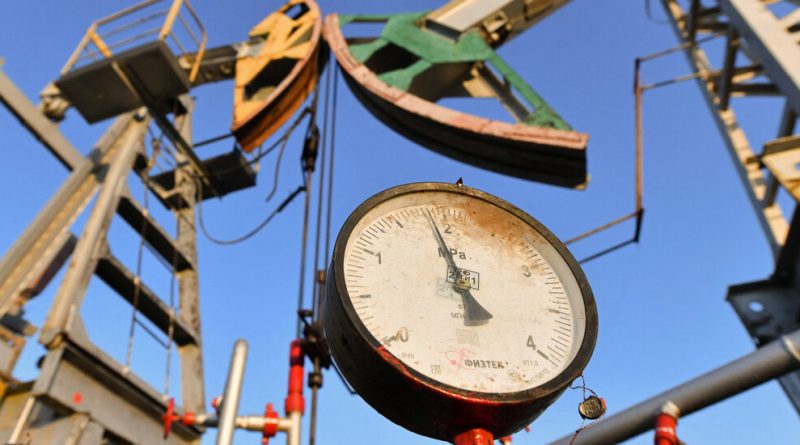Saudi Arabia and Russia to Extend Oil Cuts
Saudi Arabia said Monday that it would extend a cut in oil production of 1 million barrels a day that it announced in June through at least August, trying to push up what officials view as stubbornly weak oil prices. The Saudis were joined by Russia, whose deputy prime minister, Alexander Novak, said that Moscow would cut supplies by 500,000 barrels in August.
Together, these trims could amount to 1.5 percent of global supplies. Oil prices rose modestly on news of the cuts, with Brent crude, the global benchmark, rising above $76 a barrel before falling back slightly.
Oil prices have been under pressure in recent months because of uncertainty about the strength of the global economy as many central banks continue to raise interest rates to stem inflation. There are also doubts about oil’s longer-term future as electric vehicles and other alternatives to consuming oil continue to grow. The Saudis and other members of the producers’ group known as OPEC Plus have been gradually dialing back production since last fall.
“This additional voluntary cut comes to reinforce the precautionary efforts” previously made, according to the state-run Saudi Press Agency. The latest round of Saudi production cuts began at the start of this month. Russia’s proposed reduction in exports in August would come “as part of the effort to ensure the oil market remains balanced,” Mr. Novak said in a statement.
Monday’s announcements appear to have been coordinated and intended to create the impression that Russia, which co-chairs OPEC Plus, remains committed to the group’s efforts to manage the market. “The intention here is to signal this isn’t just Saudi Arabia operating alone,” said Richard Bronze, head of geopolitics at Energy Aspects, a research firm.
It is not clear how much supply Russia will actually cut. Russia has been under pressure from the Saudis and other members of OPEC Plus to go along with output restrictions, but Moscow has been reluctant to sacrifice revenue that could be used to help finance the war in Ukraine. China and India are now buying the bulk of Russia’s seaborne oil exports after international sanctions targeting Russia’s energy industry restricted sales to previous buyers in Europe and elsewhere.
The Saudi oil minister, Prince Abdulaziz bin Salman, appears to be trying to demonstrate to markets that he will do whatever is necessary to support prices. But the Saudis are in a difficult position in which they are being forced to bear the brunt of the cuts, creating speculation about how long OPEC Plus will be able to maintain cohesion.
According to Saudi Arabia’s announcement, the kingdom’s oil production will now be just 9 million barrels a day — a drop of close to 2 million barrels a day compared with the third quarter of last year. The Saudis are investing heavily to increase their production capabilities but instead are being forced to throttle back.
Stanley Reed has been writing from London for The Times since 2012 on energy, the environment and the Middle East. Before that he was London bureau chief for BusinessWeek magazine. @stanleyreed12 • Facebook
Source: Read Full Article



